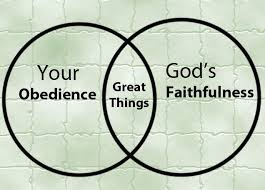The Possibilities
A child gazes into a new box of Legos and begins to fantasize about that special robot they have always wanted. A young lady searches for that one “special” dress. She knows the silhouette, color, and fabric. She has already envisioned wearing it on Saturday. I stare at the picture of shrimp and grits. Reviewing each ingredient, I imagine its succulent taste in my mouth. All three of us with our own unique desire will bring into reality what we have each imagined by beginning with the end in mind.
“Begin with the end in mind” is one of the principles from Steven Covey’s best seller, The Seven Habits of Highly Effective People. Covey puts forth the idea that by clearly seeing the goal we desire at the beginning, we will more likely be able to accomplish that goal in the end.
Before the foundation of the world, God had a specific end in mind. It was two-fold: first, to redeem mankind, and secondly, to restore the Kingdom of God. Both purposes were fulfilled and will be fulfilled through Jesus Christ (Is. 9:6-7).
Having made known to us the mystery of His will, according to His good pleasure which He purposed in Himself, that in the dispensation of the fullness of the times He might gather together in one all things in Christ, both which are in heaven and which are on earth—in Him. Ephesians 1:9-10 (NKJ)
The mystery has been made known.
The mystery (musterion) of God’s will can only be known because of God’s willingness to make it known. The word literally means “to shut the mouth” and in this context, it refers to a truth once hidden but now made known (Rom. 11:25; Col. 1:26).
The mystery “was made known” when Christ came in the flesh (Titus 2:11) and the long-awaited plan of redemption was initiated according to God’s good pleasure. God knew what was needed to resolve the issue of sin. He “purposed in Himself” a plan that was to be carried out in Jesus Christ, His Son. This mystery has now been revealed “to us”—His Church.
The purpose realized—in part.
Dispensation refers to the management or oversight of other’s property. God gave Christ oversight over all the elect, not only in the physical world, but also those already in heaven. The Apostle Paul revealed to the church at Ephesus God’s eternal purpose to “gather together” not only them, but all who have by faith accepted Christ.
This “gathering together” began with a chosen people who ultimately became a nation called Israel (Ps. 132:11-13). This “gathering together” continued with a rejected people, the New Testament Church (1 Pet. 2:10), who became heirs of God and joint heirs with Christ (Romans 8:17).
The “fullness of times”, however, is yet in eternity future, when Christ begins His reign in the Millennial Kingdom (Rev. 21). Then the purpose which God began before the foundation of the world will be realized in full.
What about us?
What has God purposed for our life? It’s much more than “living happily ever after”. God has gifted us with spiritual (and material) blessings to bring into reality what was always the plan for mankind and His Kingdom.
Let our life “in Christ” be centered “on Christ”! This season of Lenten is a great time to realign and reprioritize our plans with God’s vision for our life. Let us remember to keep the “main thing the main thing.”





